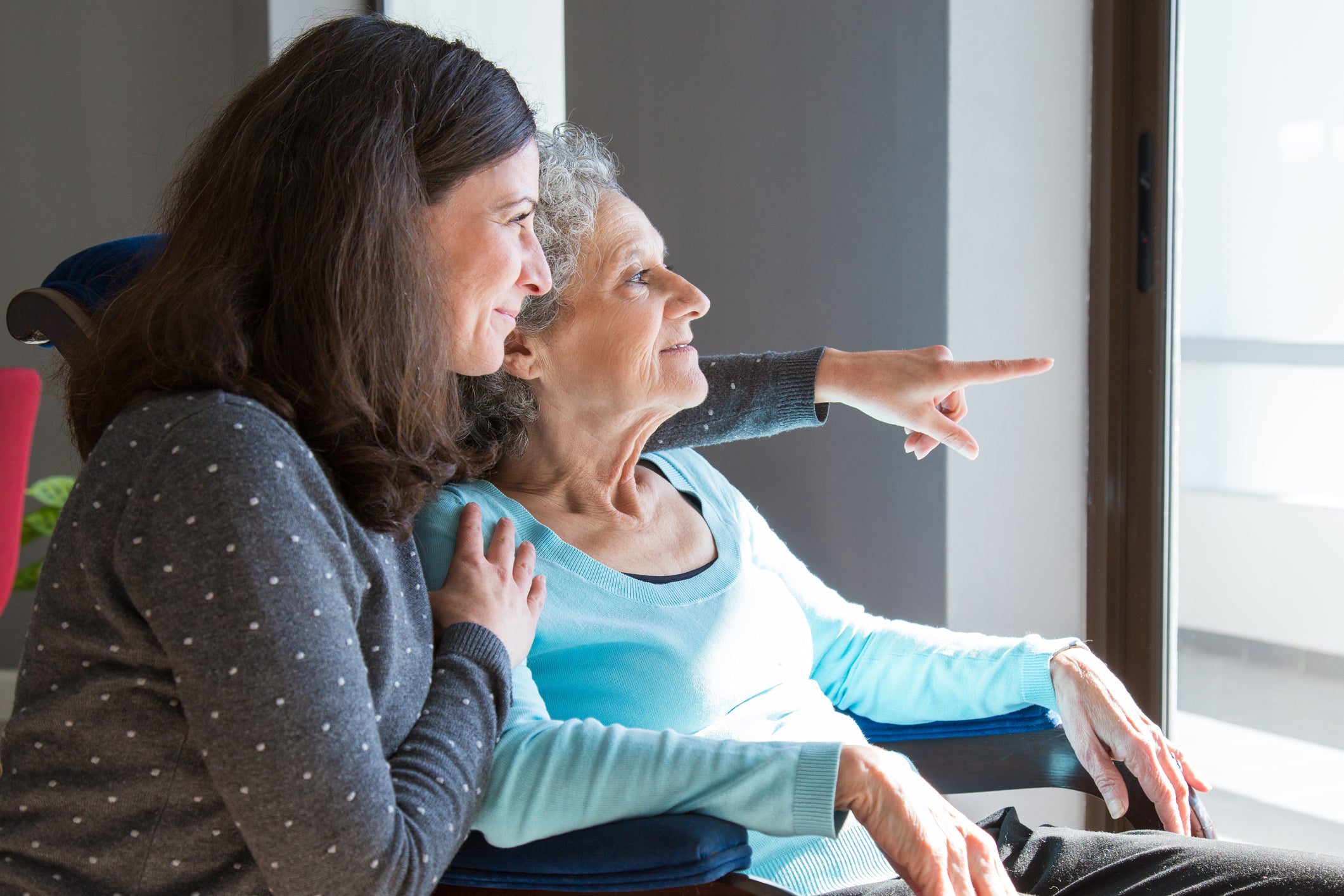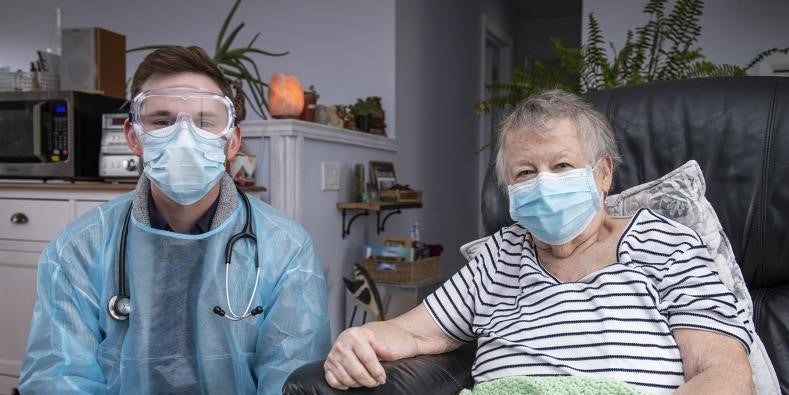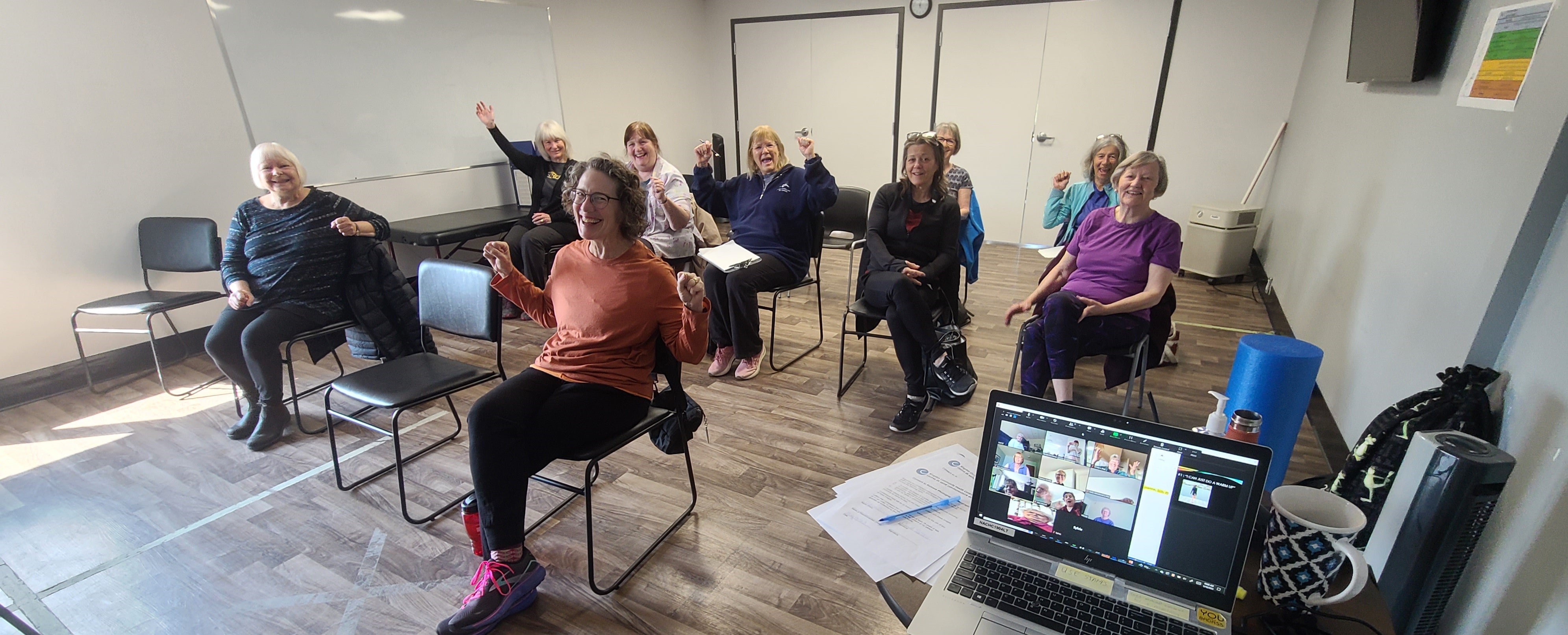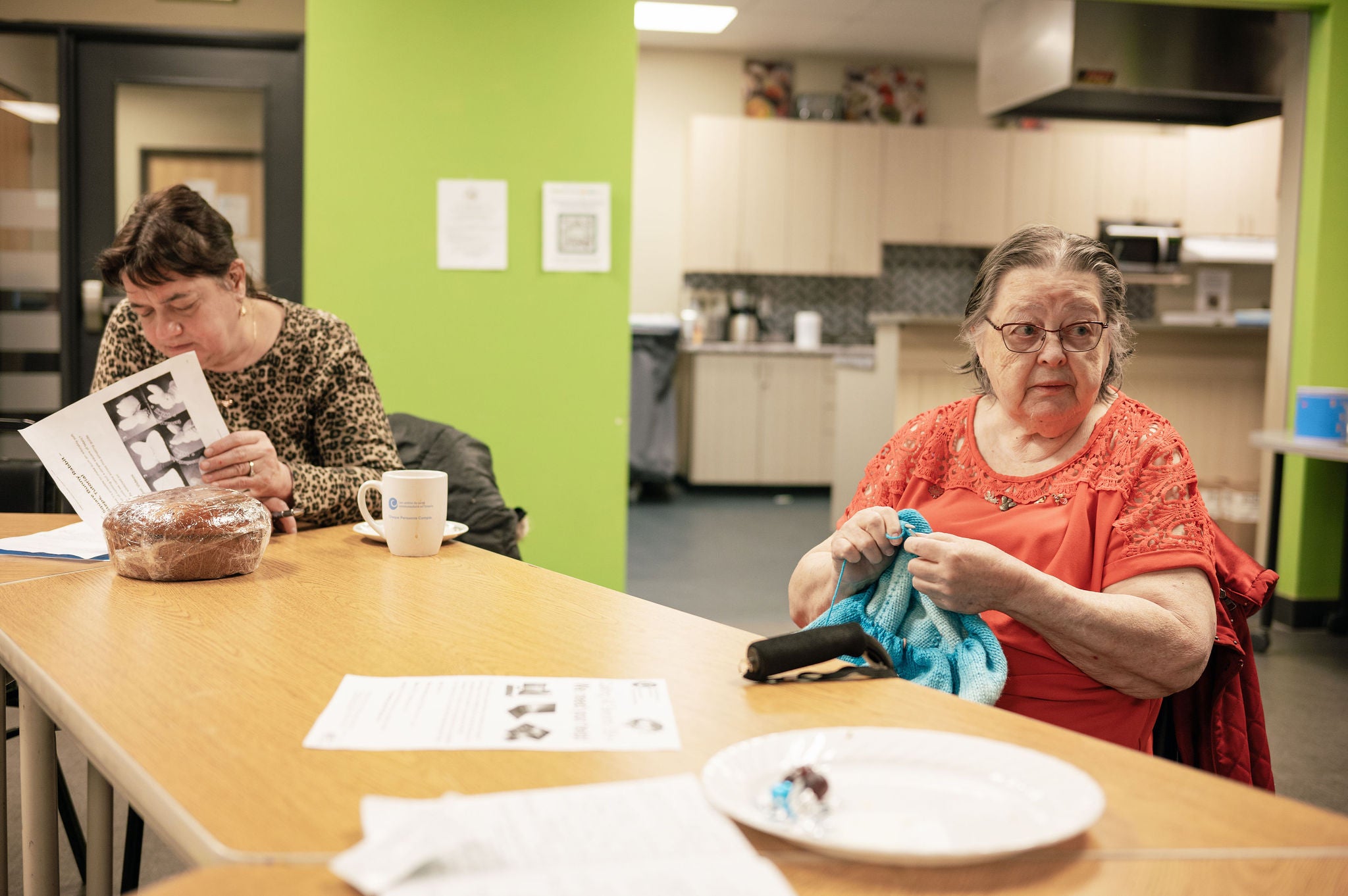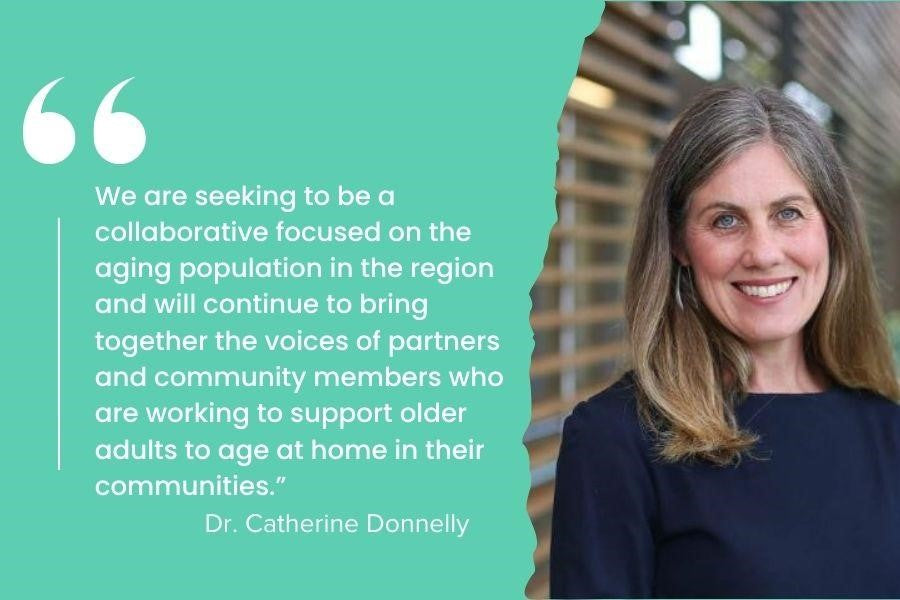
We know many people could age well in their homes and community with the right resources and supports. The reality is many face barriers like ageism and challenges finding and procuring resources.
The Aging Well at Home Working Group has come together to encourage new ways of thinking about aging.

Current Challenges
- The FLA OHT region has a growing older population, including more in long term care than the provincial average.
- People in need often face long wait times for publicly funded care and support in their homes.
- Accessing community and home care services can be hard for individuals and their families, in part due to ageism, as well as coordination of care.
- Communication and coordination between health and social service providers can be fragmented and ineffective.

What we are working towards
- Determining how to better support individuals and caregivers to age well at home. This includes how to maintain independence for those in need of anything from minimal to maximum supports.
- Establishing effective collaboration and communication between health and social service providers. That includes creating an advocacy role to help meet the needs of older adults.
- Improving awareness and navigation of resources to support people accessing home and community services.
Aging Well at Home Projects
Aging Services Inventory
A new platform with an inventory of resources has been developed for older adults and providers.
- In partnership with Canadian Frailty Network and based on the AVOID Frailty framework.
- Testing and refinement of the new platform was conducted.
- Visit the AVOID Frailty Program for Healthy Aging for more information or to register.
The Loyalist Family Health Team and their patient population are piloting these initiatives:
Group Discussions
Aging Well at Home Committee: an interdisciplinary committee to foster understanding of how to effectively assist people to age well at home and plan and facilitate Aging Well at Home Rounds.
Aging Well at Home Rounds: the primary care team and members of pertinent care agencies together identify resources for people determined by the care team as having inadequate supports to age well at home. These rounds increase connections across partners and organizations, awareness of community supports and gaps in services.
New Roles
Aging Well at Home Advocate: the Occupational Therapist at Loyalist Family Health Team developed this role in order to better guide and assist people looking for resources to age well at home.
Home and Community Care Support Services Care Coordinator: this role has been embedded into the Loyalist Family Health Team to improve integration of services and better support people through a collaborative care model.
Health and Social Care Integrator: a new role supporting older adults with more complex needs by understanding their health and social needs. This may include direct nursing care if needed. This pilot has support from SE Health and SE Research Centre. The impact of the role is being evaluated.
June is Seniors Month!
KHSC@Home is helping seniors leave the hospital with the care they need at home
Movement as Medicine!
Self-management programs for people 50+: helping you live a healthier life
Providing aging adults with the right resources to live independent, healthy lives
Listening to and learning from two senior community volunteers
Activities for seniors at Kingston Community Health Centres (KCHC

Who's involved?
Community members, primary care providers, home and community care agencies, researchers and specialists from across the region are working together.
Community members include people with lived experience, family, caregivers and others.

